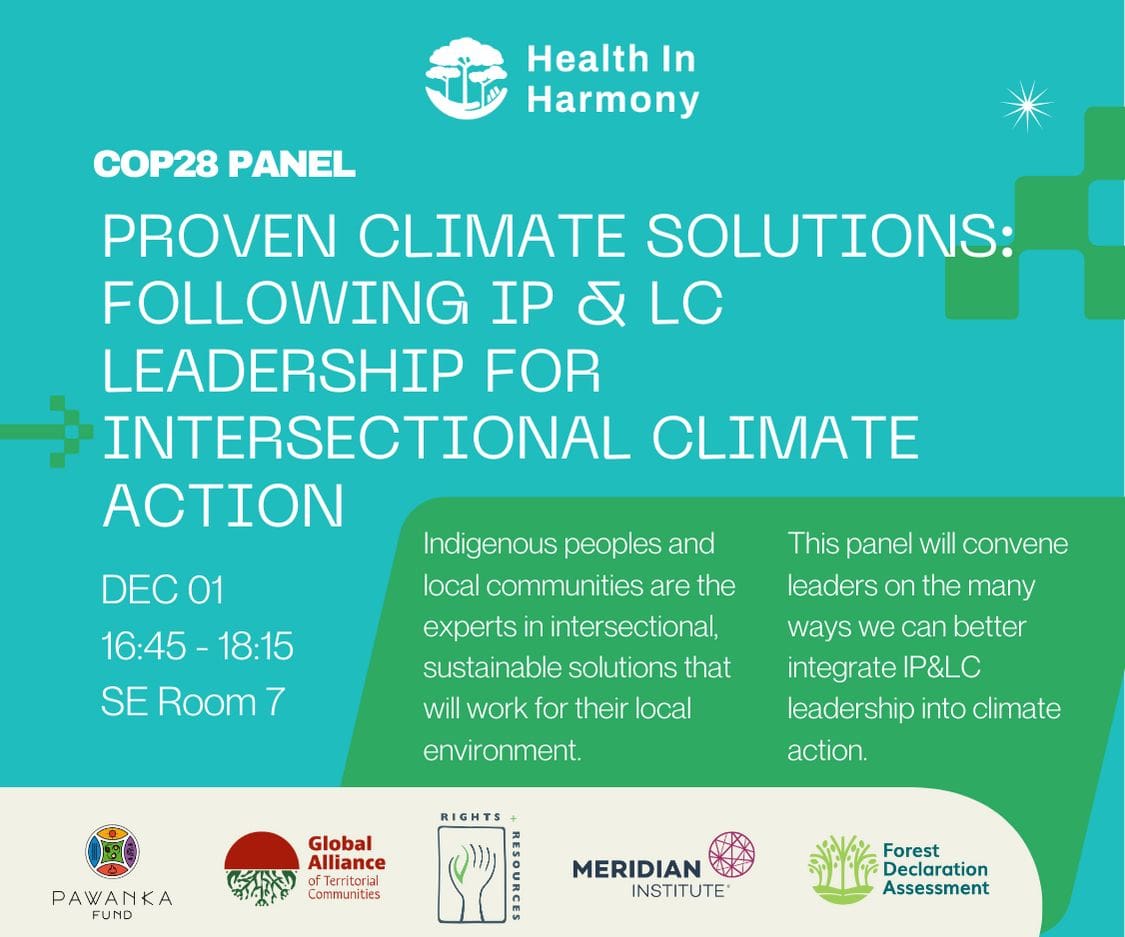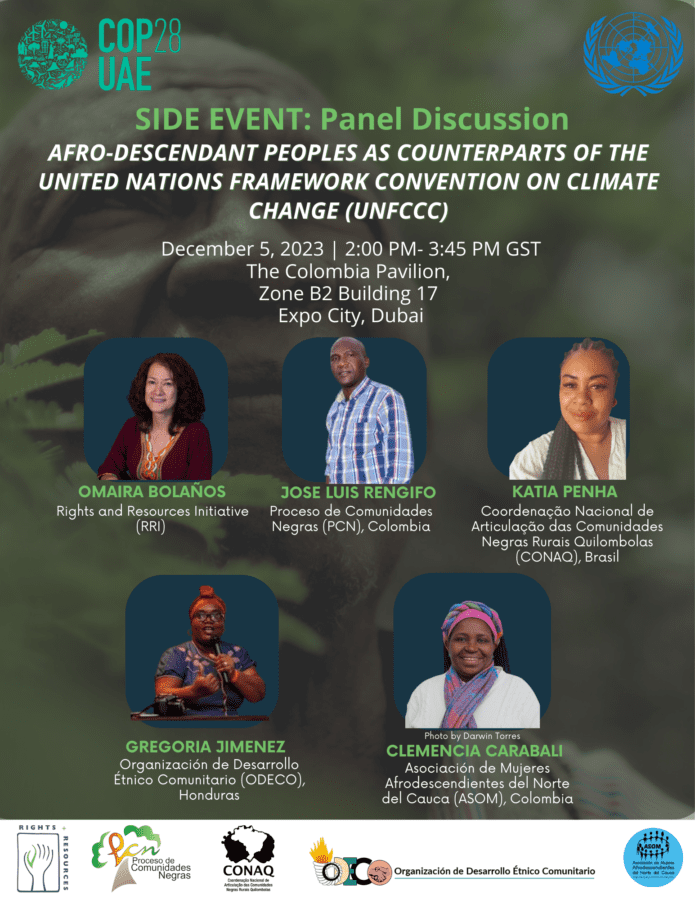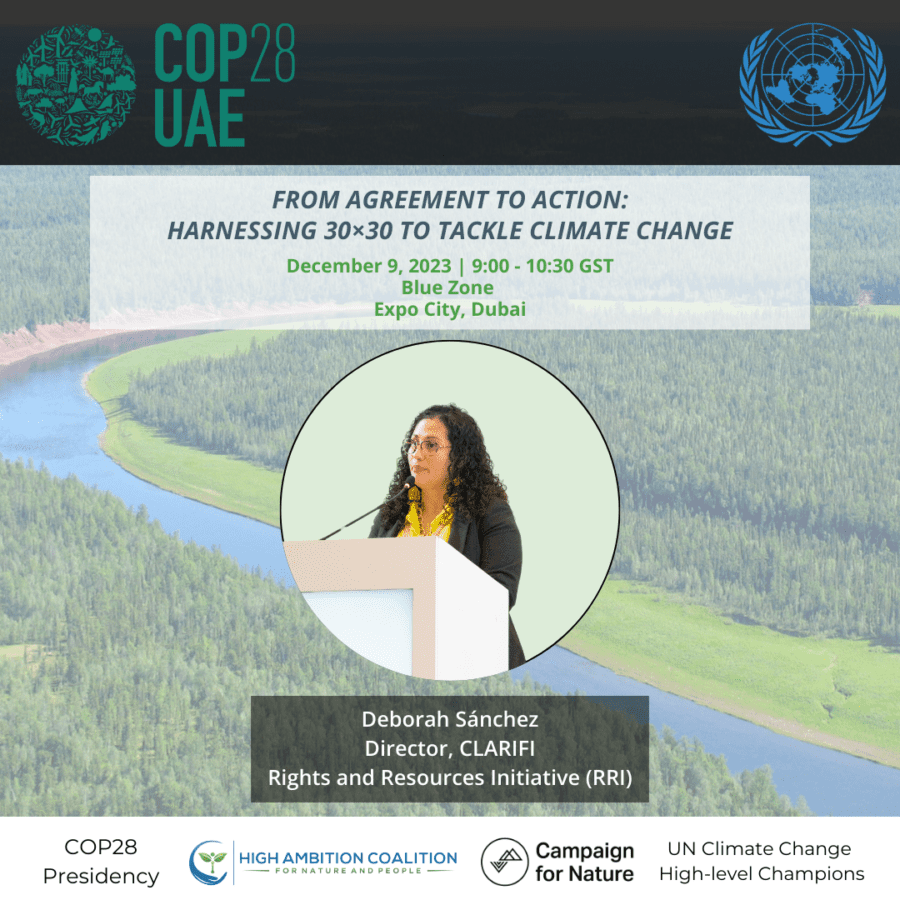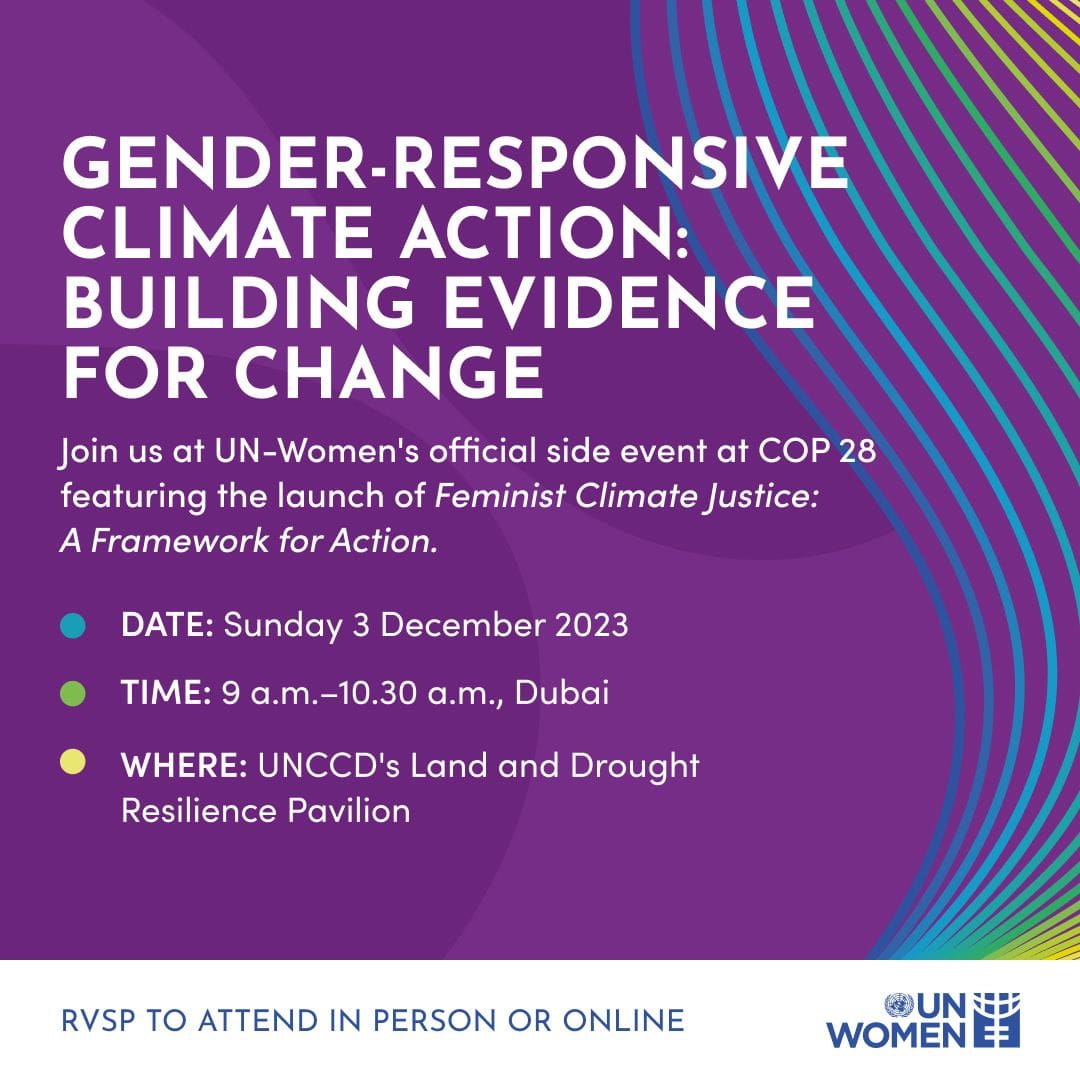RRI Engagements at the 2023 UN Climate Change Conference
Date: 11/30/2023 - 12/12/2023
City: Dubai
RRI is organizing or participating in the following side events at the 28th UN Climate Change Conference, referred to as CoP28, being held on November 30 – December 12, 2023 at Expo City, Dubai.
Organized by RRI
WHAT: Planetary Health in Action: The Role and Impact of Indigenous Peoples and Local Community Solutions for Climate and Biodiversity
WHEN: 12/1/23, 16:45 – 18:15 GST
WHERE: SE Room 7, Expo City, Dubai
WHO: Ashley Emerson (Health in Harmony); Darragh Conway of Climate Focus; Myrna Cunningham (Pawanka Fund); Nonette Royo (Tenure Facility); Jose Luis Rengifo (PCN, Colombia); and representatives from the Global Alliance of Territorial Communities (GATC); RRI; Meridian Institute; and the Indigenous Information Network (IIN).
INFO: Indigenous Peoples and Local Communities are the experts in intersectional, sustainable solutions that will work for their local environment. This panel will convene leaders from major institutions and IP&LC representatives to discuss how to integrate IP&LC leadership into climate action. The event is co-organized by Health in Harmony, RRI, Indigenous Information Network (IIN), and Meridian Institute.

WHAT: Afro-descendant Peoples as counterparts of the United Nations Framework Convention on Climate Change (UNFCCC)
WHEN: 12/05/2023, 14:00-15:45 GST
WHERE: The Colombian Pavilion, Expo City, Dubai
WHO: Speakers will include Omaira Bolaños, Director of the Latin America Program, RRI; Jose Luis Rengifo (PCN); Katia Penha (CONAQ); Gregoria Jimenez (ODECO); and Clemencia Carabali (ASOM)
INFO: During this dialogue, the panelists will discuss the findings of the research conducted by RRI, the Black Communities Process (PCN), the National Coordination of Quilombola Communities (CONAQ), the Observatory of Ethnic and Rural Communities’ Territories (OTEC) and 20 other grassroots organizations, who have provided significant geo-referenced data on the “Afro-descendant Peoples’ Territories in Biodiversity Hotspots across Latin America and the Caribbean“. This study shows that there are 205 million hectares in 16 countries in the region with the territorial presence of Afro-descendant Peoples. From this area, only 5% have legal recognition of the collective right of tenure over land and territory. It also shows that these territories contain about 87 million hectares of tropical forests and in Belize, Bolivia, Costa Rica, Ecuador, Guatemala, Honduras, Nicaragua, and Panama, 100% of the territories of Afro-descendant Peoples are in areas considered biodiversity hotspots.
This dialogue seeks to motivate concrete actions in Latin American states and donors to promote and implement reforms for the recognition and titling of Afro-descendant Peoples’ territories, as a way to ensure an effective path to the fulfillment of states’ commitments to mitigate and adapt to climate change and biodiversity conservation. The study also seeks to position the leading role that the Afro-descendant Peoples of this region should have in decisions on climate change mitigation and biodiversity.

Speaking Engagements
WHAT: From Agreement to Action: Harnessing 30×30 to Tackle Climate Change
WHEN: 12/9/23, 9:00 – 10:30 GST
WHERE: Blue Zone, Expo City, Dubai
WHO: Deborah Sanchez, RRI Director, CLARIFI
This event will bring together governments, Indigenous Peoples and local communities, civil society, and private sector actors to celebrate the adoption of the Kunming-Montreal Global Biodiversity Framework and take stock of progress one year from CoP15. Monitoring how governments are delivering their commitment to conserve, protect, and restore at least 30% of the planets land and ocean by 2030, this event will underscore the importance of delivering the goals of the Paris Agreement.
MORE: https://www.cop28.com/en/schedule/from-agreement-to-action-harnessing-30×30-to-tackle-climate-change

WHAT: Gender-Responsive Climate Action: Building Evidence for Change
WHEN: 12/3/23, 9:00 – 10:30 GST
WHERE: Land and Drought Resilience Pavilion, Expo City, Dubai
WHO: Omaira Bolaños, RRI Director, Gender Justice and Latin America Programs
UN Women’s event at CoP28 will bring together UN agencies, governments, and civil society organizations to discuss how to build and use evidence to drive transformative shifts on gender equality and climate change. This event’s goal is to create a space for discussion of feminist alternatives to the status quo and priority policy approaches to achieving change, emphasizing the importance of knowledge and data, from a diversity of sources, for driving long overdue transformation. The session’s outcomes will inform the negotiations and align with the strong priority placed on gender equality by the CoP28 presidency.
Click here to register to attend online or in person.

